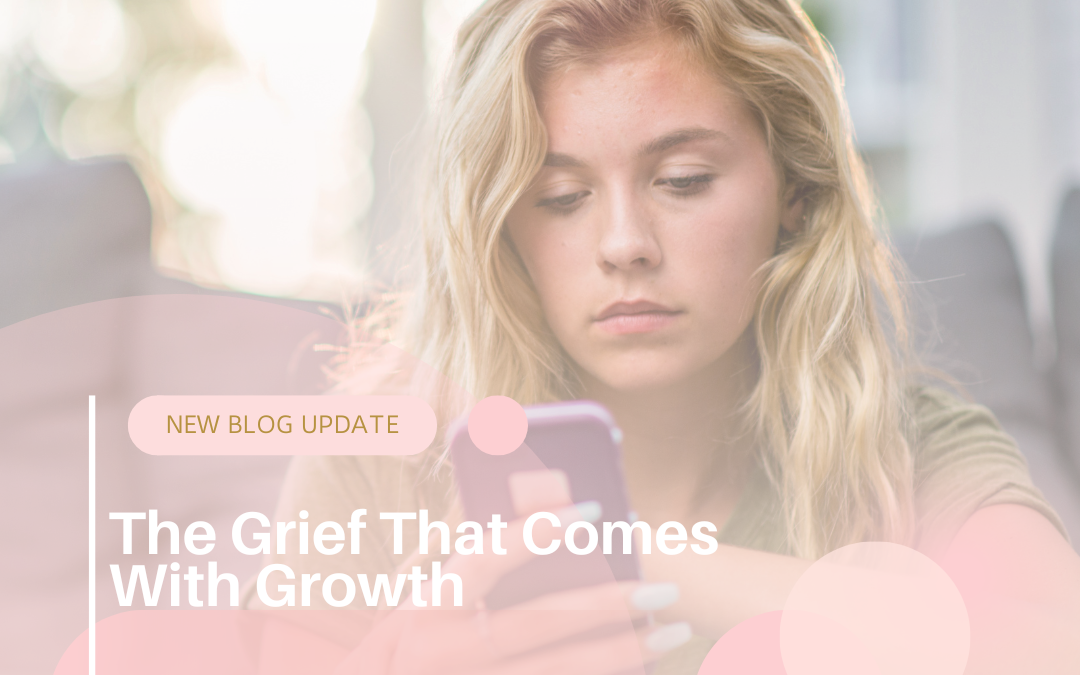When people talk about healing, the focus is usually on the positive. Growth. Strength. Freedom. And while all of those things are real and powerful, there’s a quieter part of healing that doesn’t get as much attention — the grief that comes with outgrowing people you once loved deeply.
It’s the ache that lingers after you set a boundary.
The silence after you stop reaching out.
The realization that some relationships can’t go where you’re headed.
Healing isn’t just about becoming; it’s also about letting go. And sometimes, that’s the hardest part.
Outgrowing Isn’t Arrogance — It’s Alignment
When you begin working on your mental health — whether through therapy, reflection, or recovery — your perspective starts to shift. You notice what no longer feels good: the friend who makes everything about them, the relative who disrespects your boundaries, the partner who thrives in your codependency.
You may start setting limits, using your voice, asking for more, or simply saying no. And sometimes, the people in your life can’t or won’t meet you there.
That disconnect doesn’t mean you’re better than them — it means you’re honoring the version of yourself that’s no longer willing to shrink.
The Grief No One Prepares You For
No one warns you that healing might mean losing people. And it’s not always toxic relationships — sometimes it’s people you love, people who were good to you, but who can’t walk beside you in this next chapter.
You may grieve:
-
The friends who no longer “get” you
-
The family you hoped would change
-
The partner who couldn’t grow with you
-
The community you once called home
This grief is real. It’s complex. It often comes with guilt, second-guessing, and loneliness. You might wonder, Did I do the right thing? Am I the problem? Should I have stayed quiet?
But grief is a natural part of transformation. You’re mourning the loss of what was, while still moving toward what could be.
Healing Doesn’t Always Feel Good
Sometimes healing feels like heartbreak.
Sometimes it looks like isolation before connection.
Sometimes it means making peace with unfinished stories.
This discomfort doesn’t mean you’re doing it wrong — it means you’re doing it honestly.
Growth asks us to release people who benefitted from our silence, our self-abandonment, or our unhealed patterns. That kind of release isn’t cruel — it’s necessary. And deeply brave.
Creating Space for New Connections
As you heal, you begin to attract relationships that match your growth: people who respect your boundaries, honor your truth, and love you without conditions. But before those people arrive, there’s often a lonely middle space — the in-between where you feel untethered.
If you’re in that space, know this: it won’t last forever. You’re not broken, and you’re not alone. You’re just becoming someone new. And becoming someone new often requires walking away from who — and what — once felt familiar.
Final Thoughts
Healing is beautiful. But it’s also messy, raw, and sometimes heartbreaking. The grief of outgrowing people is a real part of that journey, and it deserves to be named.
Let yourself feel the loss. Mourn it. Honor it.
But don’t mistake that pain for a sign that you’re going backward.
More often than not, it’s a sign that you’re moving forward — with courage, clarity, and a deeper commitment to your own peace.


Recent Comments